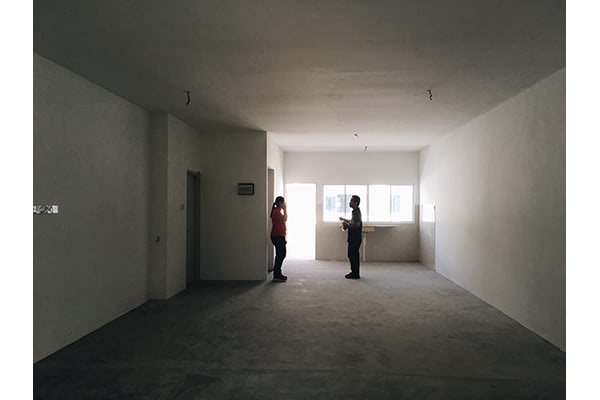You’ve probably heard of the phrase “house poor” before, but what does it mean? Unfortunately, simply owning a house doesn’t mean being free and clear of homeownership financial trouble. Owning a home can result in being house poor, and societal expectations of home ownership mean many Canadians find themselves facing this issue. Here’s what being house poor means, how it happens, and how to avoid it in 2021.
What does it mean to be house poor?
Being house poor means you’re spending a lot more money than you should on your home. This doesn’t refer to things like expensive renovations or add-ons, but simply paying for the home itself. Typically, people who spend more than 40 per cent of their income on home expenses such as mortgage payments, taxes, and utilities are considered house poor. Being house poor means there’s little room to pay for things like non-essentials and essentials that aren’t house-related, such as food or car payments.
How does becoming house poor happen?
There’s a certain mindset that spending a lot of money on our homes is the right thing to do, even when it drains us of our resources and prevents us from paying for other expenses. The societal expectation of buying and owning property can put people in a position where they feel like they need to commit to a home they can’t afford. Often, being house poor happens from the get-go after people buy a home beyond their means and experience financial hardship.
Other causes of being house poor can include changes in employment, income, or additional expenses you didn’t have before. Anything that causes a significant change in your finances can lead to being house poor.
What are the major risks of being house poor?
There are considerable risks associated with this kind of financial trouble. Being house poor means you’re stretching yourself too thin and spending most of your money on the house. This means you’re leaving no extra funds for other essentials. If you’re at constant risk of being unable to make your car or internet payments, for example, you risk losing access to them. Even worse, if you can’t make your mortgage payments, you could find yourself in a situation where you need to sell your home.
It can be tricky to dig yourself out from being house poor. You might need to consider renting out a room, finding more work, or look at refinancing to consolidate your debt.
How can you avoid becoming house poor?
Unfortunately, being house poor is common in Canada, with up to 40 per cent of Canadians experiencing it. However, it’s avoidable through proper planning and preparation, and keeping your situation in mind when making any decisions.
Keep things in perspective
Although owning a home is almost the expectation for all adults, keep in mind you don’t need to buy a home by a certain age. It’s easy to feel behind or unsuccessful if your friends are all purchasing homes and society is pressuring you to follow suit, but don’t let this push you into buying a home you don’t completely want or can’t afford. It’s perfectly fine to rent until you’re fully ready to commit to buying a home. Your success and value shouldn’t be determined by your homeownership plans, and this mindset will give you a much more stress-free mortgage experience when you get there. Unsure whether you’re ready to buy a home? You can find some guidance here to help you decide.
Do your planning
If you know you want to buy a home, it’s important to do your research to find a home you want and can comfortably afford. Work out your budget, and remember buying a home isn’t just about the down payment and mortgage. You need to include expenses like utilities and taxes in your home buying costs as well. You can find details on some common closing costs you’ll need to consider when you buy a home here. Does it look like you’ll be spending more than 40 per cent of your income on your home? You might want to reconsider your plans. Look at different property types and sizes, neighbourhoods, and prices to find a home that meets your needs without causing too much stress on your finances.
Talk to a broker first!
Even if you can technically qualify for a mortgage, that doesn’t mean it’s the healthiest financial option for you. You need to look ahead to see if certain mortgage payments are costs you can realistically maintain throughout the length of your loan. That’s why it’s important to speak to a mortgage broker before you begin house hunting! Brokers help you understand your choices and what the best path is for you. They can also help you with your budget, buying power, and how much a home might cost once closing costs are added.
If you’re looking to buy a home this year and need some guidance, get in touch with me here!
